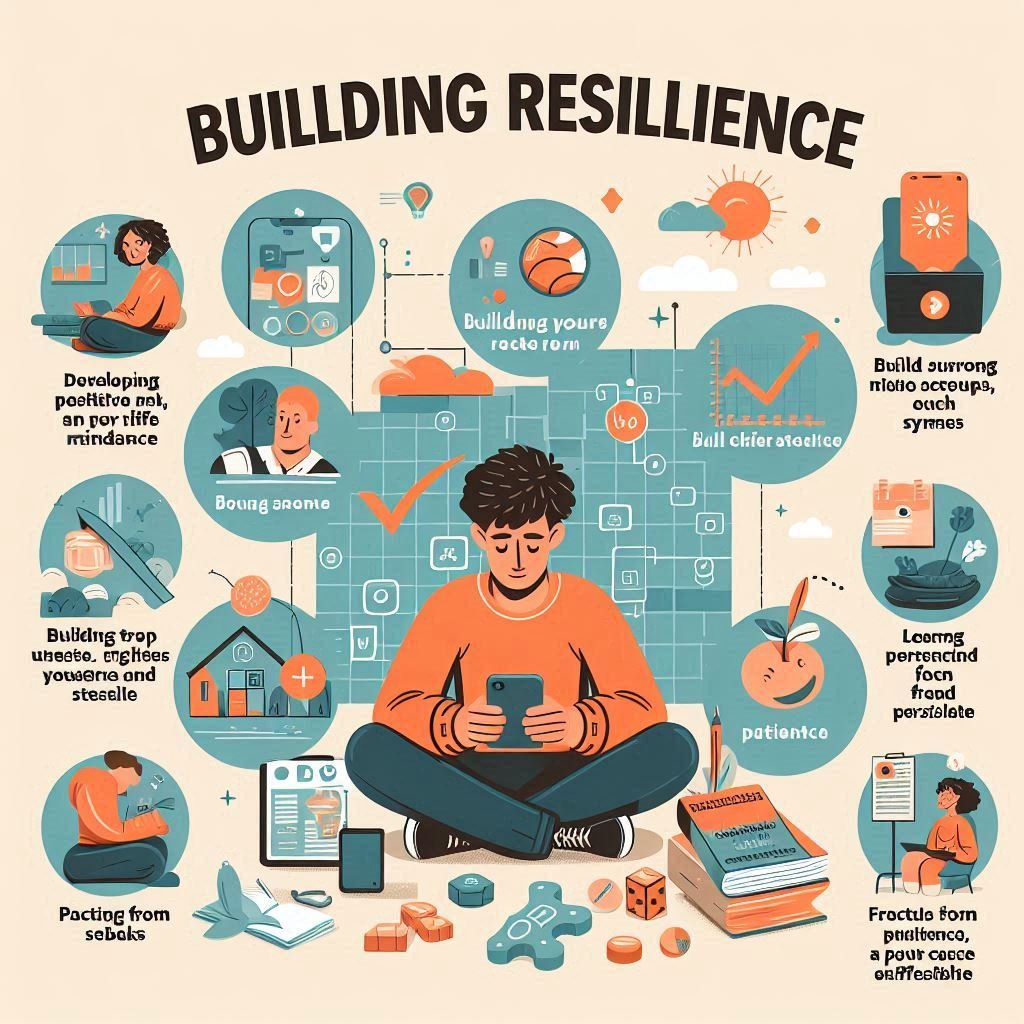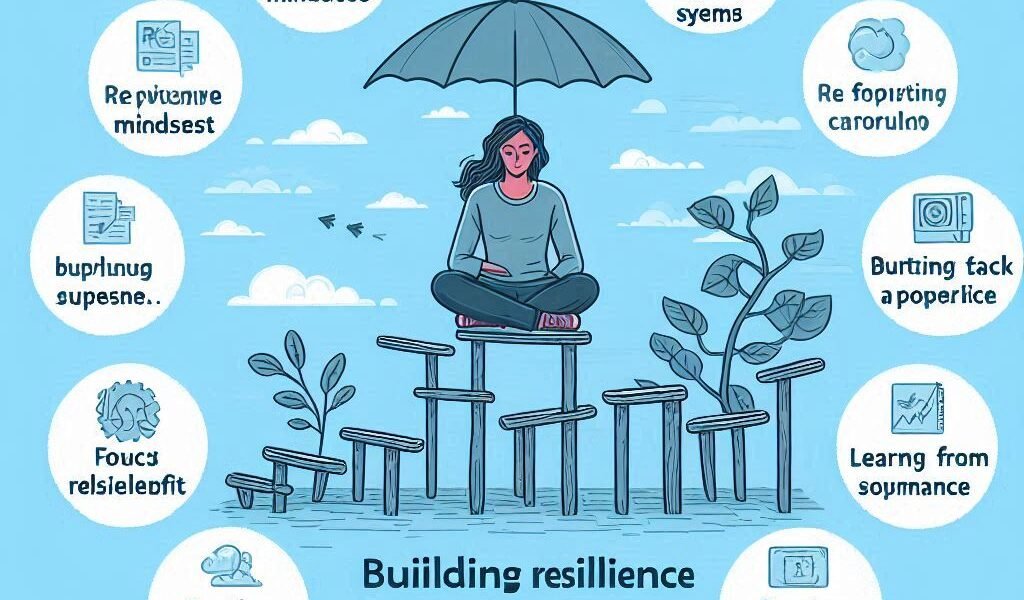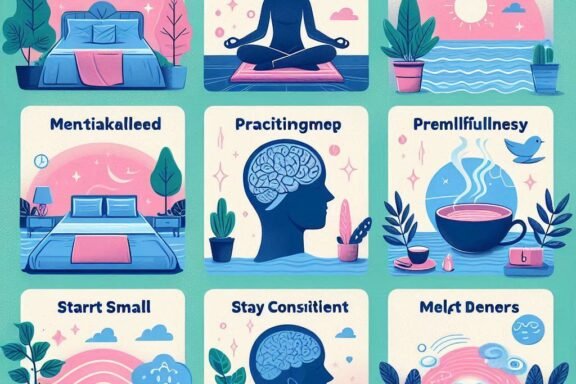Life is full of challenges, and it’s inevitable that we all face tough times at some point. Whether it’s a personal loss, a career setback, or a health struggle, these difficult experiences can leave us feeling overwhelmed. However, how we respond to adversity can make all the difference in our ability to recover and thrive. Building resilience—the ability to bounce back from hardships—can help you navigate life’s challenges more effectively. In this post, we’ll explore how to build resilience and practical strategies to help you bounce back stronger from tough times.
What is Resilience?
Resilience is the capacity to recover quickly from difficulties or setbacks. It’s not about avoiding challenges, but about how you respond to them. Resilient individuals are able to face adversity, adapt to changes, and continue moving forward despite hardships. While resilience doesn’t mean you won’t experience stress, pain, or disappointment, it empowers you to handle challenges with a more positive outlook and greater strength.
Building resilience isn’t something that happens overnight. It’s a process that involves developing a mindset, habits, and coping mechanisms that help you manage life’s difficulties in a healthier way.
1. Develop a Positive Mindset
One of the most important components of resilience is having a positive mindset. It’s easy to get stuck in negative thoughts during tough times, but cultivating a more optimistic outlook can help you see challenges as opportunities for growth rather than insurmountable obstacles.
How to Develop a Positive Mindset:
- Reframe negative thoughts: When you face a setback, try to reframe your thinking. Instead of saying, “This is the worst thing ever,” try, “This is tough, but I can learn from this.”
- Focus on solutions: Instead of dwelling on the problem, focus on possible solutions or ways you can improve the situation.
- Practice gratitude: Even in challenging times, finding things you’re grateful for can shift your perspective and help you stay positive. Write down three things you’re grateful for each day.
Why It Matters: A positive mindset doesn’t mean ignoring difficulties—it means choosing to focus on the things you can control and staying hopeful even when things seem bleak.
2. Build Strong Support Systems
No one can go through tough times alone, and having a support system in place can significantly help you build resilience. Whether it’s family, friends, or a support group, surrounding yourself with people who care about you provides emotional strength and encouragement.
How to Build a Support System:
- Reach out for help: Don’t be afraid to lean on others when you’re feeling overwhelmed. Sharing your feelings and asking for support can lighten the emotional load.
- Stay connected: Make an effort to maintain connections with loved ones, even when you’re going through tough times. Social support is essential for emotional well-being.
- Join support groups or communities: If you’re dealing with a specific challenge (like grief or illness), consider joining a support group where you can connect with others who understand your struggles.
Why It Matters: A strong support network can provide reassurance, offer different perspectives, and remind you that you’re not alone. Emotional connections help you feel grounded and less isolated during tough times.
3. Focus on Self-Care and Well-Being
Taking care of your physical and emotional well-being is crucial for building resilience. When you’re going through difficult times, it’s easy to neglect your health, but taking care of yourself enables you to cope more effectively with stress and adversity.
Self-Care Practices to Build Resilience:
- Prioritize sleep: Getting enough rest is essential for emotional and physical recovery. Lack of sleep can impair your ability to cope with stress.
- Eat well: A balanced diet supports both your body and mind. Eating nutritious foods can improve your mood, energy levels, and ability to think clearly.
- Exercise regularly: Physical activity is a natural stress reliever. Regular exercise can help reduce anxiety and depression and boost your overall mood.
- Practice mindfulness or meditation: Mindfulness techniques can help you stay present and grounded during stressful moments, reducing feelings of overwhelm.
Why It Matters: When you take care of your body and mind, you’re better equipped to handle life’s challenges and build the strength needed to bounce back from tough times.

4. Learn from Setbacks
Resilience isn’t about avoiding failure—it’s about learning from it. Tough times often teach us valuable lessons that can help us grow. Instead of seeing setbacks as signs of defeat, try to view them as opportunities for growth and personal development.
How to Learn from Setbacks:
- Reflect on the experience: After facing a setback, take some time to reflect on what happened. What went well? What could you have done differently? What lessons can you apply going forward?
- Embrace mistakes: Mistakes are part of life. Rather than being discouraged by them, use them as stepping stones to improve and grow.
- Set new goals: After a setback, it can be helpful to set new, realistic goals. This can provide direction and motivation as you work through challenges.
Why It Matters: Learning from setbacks helps you build resilience by reframing failure as a chance to grow, which boosts your confidence and adaptability in the face of future challenges.
5. Practice Patience and Persistence
Building resilience is a long-term process, and bouncing back from tough times doesn’t happen overnight. It requires patience and persistence. The road to recovery can be slow and uncertain, but staying persistent and patient with yourself will help you stay on track.
How to Practice Patience and Persistence:
- Set small, achievable goals: Breaking down larger goals into smaller, manageable steps can help you maintain momentum, even when progress feels slow.
- Be kind to yourself: Understand that healing takes time. Give yourself grace and allow yourself to experience both good and bad days without judgment.
- Celebrate progress: Acknowledge your progress along the way. Even small steps forward are important and show that you’re moving in the right direction.
Why It Matters: Resilience is about steady progress, not perfection. Practicing patience and persistence ensures that you keep moving forward, even when the path feels challenging.
6. Stay Flexible and Adaptable
Life is unpredictable, and sometimes the path we envisioned for ourselves may change. Building resilience requires the ability to adapt to new circumstances and stay flexible in the face of adversity.
How to Stay Flexible:
- Embrace change: Instead of resisting change, try to approach it with curiosity and openness. Adapt to the new situation, and focus on how you can make the most of it.
- Let go of control: There are many things beyond our control. Letting go of the need to control every aspect of life can reduce stress and help you accept things as they are.
- Focus on what you can control: When faced with change or uncertainty, focus on the actions you can take, rather than worrying about what you can’t change.
Why It Matters: Staying flexible and adaptable allows you to cope with life’s unpredictable nature and bounce back more easily when things don’t go as planned.
Conclusion
Building resilience takes time, but the rewards are well worth the effort. By developing a positive mindset, building a strong support system, focusing on self-care, learning from setbacks, practicing patience and persistence, and staying adaptable, you can bounce back from tough times stronger than ever. Remember, resilience isn’t about avoiding challenges—it’s about how you choose to face them. With these strategies, you’ll be better equipped to navigate life’s difficulties with confidence and grace.








No Comments